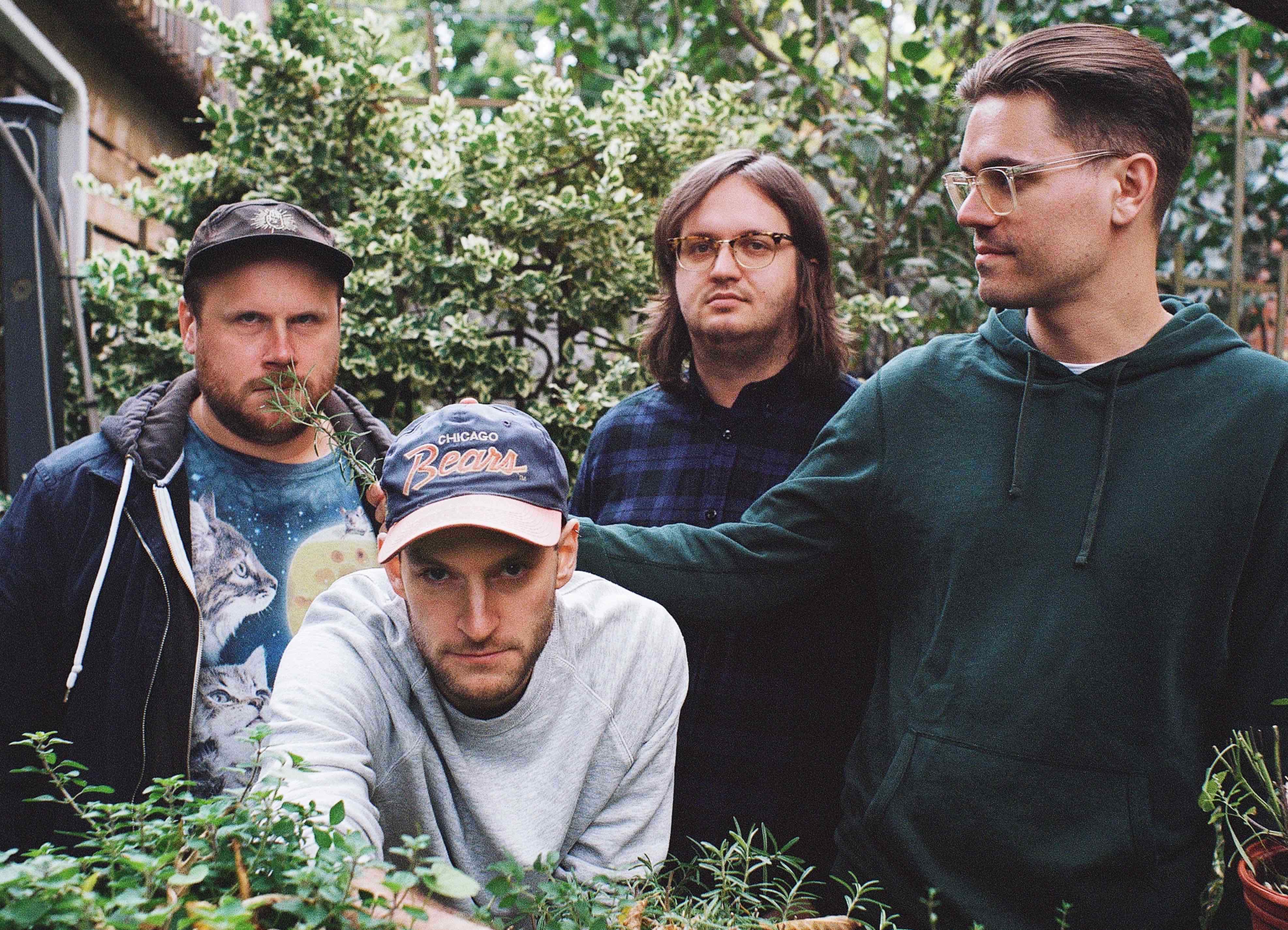“Should” is a tricky word. It sets unrealistic expectations. It’s guilt-inducing. I should go to the gym today. I should hang out with my friends more. I should be happy.
PUP drummer Zack Mykula knows all about this: “The expectation that you’d be happy just because you’re a semi-successful touring musician—it’s like the other side of that sword is the self-shame that comes with acknowledging you should be happy,” he says. “‘Should’ is the operative word because ‘should’ is inherently a self-shaming word.”
Some might place this burdensome expectation on the Toronto punk band because the members have done a lot since they released their self-titled debut album in 2013. But even saying “a lot” is an understatement: The four-piece set a goal to play two hundred shows that year, and they played over two hundred and fifty. They followed up their beloved debut with another critical darling, The Dream Is Over, in 2016. To top it all off, the band releases music videos that can be described as nothing less than iconic.
Now, PUP—made up of singer Stefan Babcock, bassist Nestor Chumak, and guitarist Steve Sladkowski, in addition to Mykula—is back with their most ambitious album yet, Morbid Stuff. On the surface it’s a fun, bopping record with nearly forty minutes of rambunctious headbangers and mighty anthems.
But leading up to the creation of Morbid Stuff, the four guys were going through some bleak times.
Hiding in plain sight, beyond the commanding guitars, pulsing bass, and red-blooded drumming, this impassioned album is dark. Real dark. Babcock explores the shadowy recesses of his mind—the parts that most of us would prefer to avoid—to dive into ideas of self-destruction, numbness, restlessness, and isolation.
“We should be really stoked on life,” Babcock says. “That can be a tough thing to deal with, because your happiness or sadness can exist totally independent of things that are going on around you. We were always wondering what was going to come next for us in our lives.”
“Once the song is finished, going back, before we record, and being like, ‘Holy shit, do I really want to say that?’ That’s the hard part.”
Luckily for PUP, these are the conditions in which they thrive creatively. But instead of extracting musical inspiration from other artists, Babcock turned to an unlikely medium: podcasts. He explains that when he’s deep in the writing process, listening to music can be the last thing he wants to do in his spare time. His favorite podcasts include a smattering of hockey-related series, as well as true crime pods Dirty John and Dr. Death.
“Especially listening to Dr. Death and Dirty John, I would be like, ‘Man, everybody’s life is way more fucked up than mine,’” Babcock laughs. “This isn’t that bad.”
In Babcock’s words, Morbid Stuff became like his own personal podcast. One where he could be utterly vulnerable and comfortable with himself.
“I felt like I was just figuring out my voice, and figuring out how to say the things I wanted to say properly, and just ran with it,” Babcock says. “Sometimes probably too much. Should have fucking reined it in a little bit.”
It’s true—Babcock doesn’t shy away from divulging his most intimate thoughts on this record. From wondering whether he should have given in to his demons on “Kids,” to not being able to recognize himself in the mirror anymore on “Scorpion Hill,” he lays it all on the table.
“It’s easy for me to write songs about it,” he says. “How I deal with it is by writing songs. The aftermath is the hard thing. Like, once the song is finished, going back, before we record, and being like, ‘Holy shit, do I really want to say that?’ That’s the hard part.”
One way to cope with this vileness is humor.
“Humor is a big part of the record,” Babcock says. “If you can’t laugh at yourself, you’re totally fucked. A lot of this record, at least lyrically, is me trying to work through the dark shit and trying to figure out what the fuck was wrong with myself, but also trying to be gentle with myself about it—to remind myself that music is supposed to be fun.”
“Humor is a big part of the record. If you can’t laugh at yourself, you’re totally fucked.”
You can find the fun dotted throughout Morbid Stuff, in the form of wry jokes and black witticisms. At the end of “See You at Your Funeral,” Babcock throttles up to a panicky scream: “I hope the world explodes / I hope that we all die / We can watch the highlights in hell / I hope they’re televised.” And in the middle of a Satanic ritual (or is it just a trip gone wrong?) described in “Bloody Mary, Kate and Ashley,” Babcock grills the listener, asking an important but ridiculous question: “Do you prefer Ashley or Mary Kate?”
Uniting all eleven tracks is the idea of sticking together. Despite the self-loathing, despite the apathy, the band members still have one another. Even though Babcock decries the “mind-numbing reality of a godless existence” in “Kids,” it ultimately doesn’t matter, because he’s “pretty happy lying here with you / It’s pretty good to feel something.” We may all be losers, but at least we’re losers together. That’s what makes our pretty terrible world a little more bearable—and what makes this record a delight to listen to.
“It’s really funny for us to write these bummer songs and play them in a way that’s really fun,” Babcock says. “If you haven’t heard our band before or seen us live and you just read the lyrics, you’d be like, ‘This sucks.’ While the lyrics are often bleak and dark, I just find this to be our most joyful, fun record.” FL







